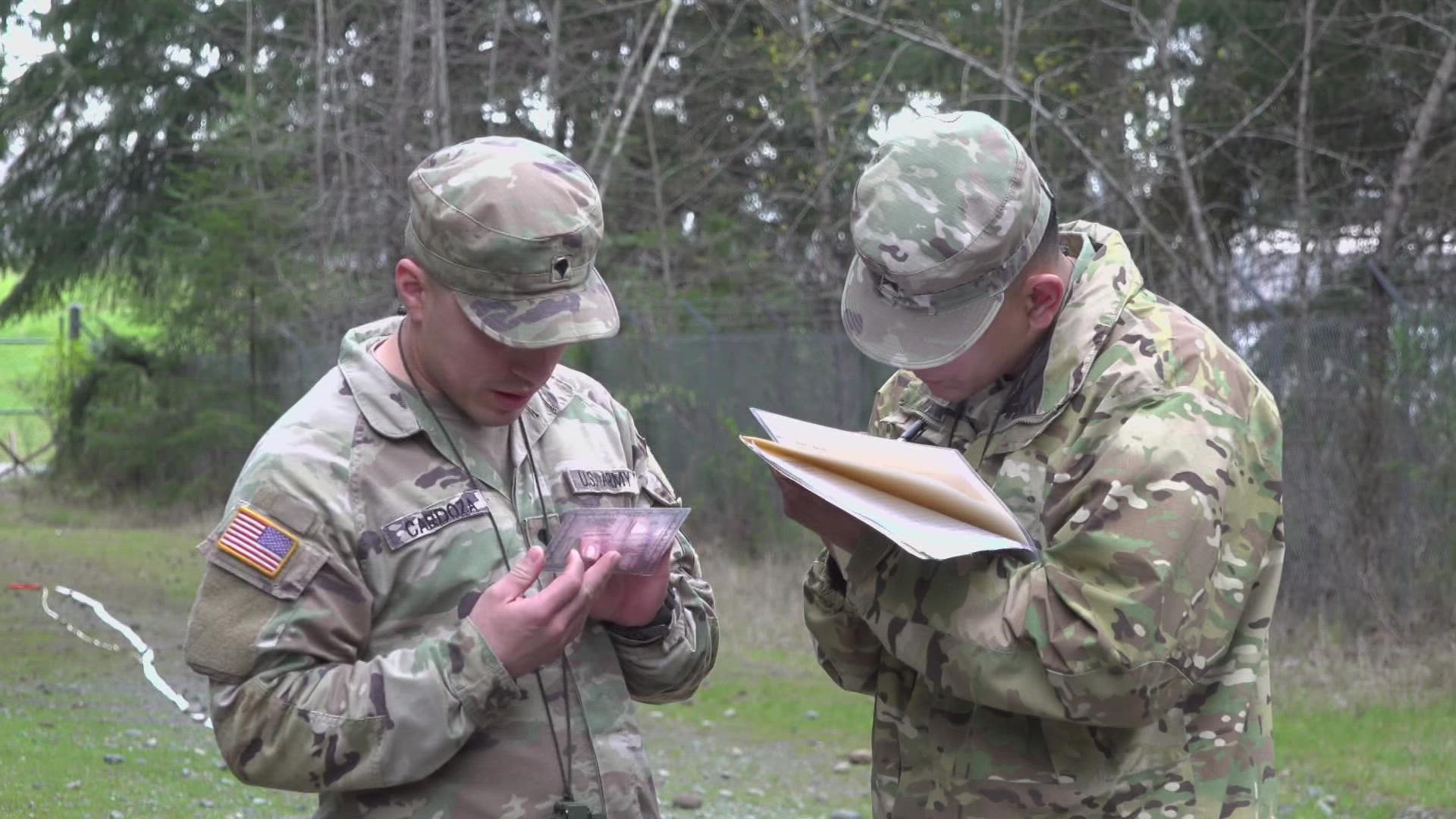JOINT BASE LEWIS-MCCHORD, Wash. — A new train-up within the 1-2 Stryker Brigade Combat Team out of Joint Base Lewis-McChord (JBLM) is preparing soldiers for the US Army's elite Sapper Leader Course and helping increase trainees' readiness and combat engineering skills.
"The first goal is getting people to the school and getting people through the school, setting them up for success and doing the hard mental and physical training that leads up to it so they're best set up for success and they'll come back with a Sapper tab - that's one goal," said 1st Lt. Meghan Anderson. "The second goal is really to improve skills across the formation."
If they have 40 people in their train-up and five make it to Sapper school and come back with a tab, then they have another 35 that have learned all the skills and tested their limits, Anderson explained.
1st Lt. Camm Johnson, Staff Sgt. Dustin Sherwood and 1st Lt. Anderson organized and are leading the training, which includes techniques and skills such as land navigation, water, and air operations, mountaineering, and demolition. Though most of the skills are centered around combat engineering, many of them can be applied to other positions as well.
"It's essentially a course you want to go to, to increase your engineering skills, but it's pretty rigorous physically, too," Anderson said.
Anderson said she first joined the Army because of the education benefits but soon fell in love with constant opportunities to grow and test her limits.
"One, the challenge, every single day, testing your limits. And then, really, the teamwork was something that you don't find in every job. So, that's why I decided to make it a full-time job if that makes sense," Anderson said.
She commissioned at Loyola University Maryland in Baltimore, then went to the Engineer Basic Officer Leadership Course at Fort Leonard Wood before being stationed at JBLM. She is one of a growing number of female combat engineers in the US Army.
"One of the subtle but challenging things we forget about is that since there are only enlisted females since 2015, there's not like women that are higher in the ranks that can be mentors to a lot of junior enlisted females," Anderson said. "Mentorship and networking is super important in the Army just because you learn so much from people who have done it before and they have all the tools to help you, and a lot of junior enlisted don't have that woman in higher mentorship."
She hopes that as one of the leaders of this train-up, she can be a mentor and help set an example for soldiers junior to her.
"Whether it's pushing myself a little bit more or remembering it's OK to be assertive, and that it's OK to step in and say something, it's OK to be loud, I start to remember that I do that because people are watching," Anderson said.
Soldiers in the train-up say they hope to attend the Sapper Leader Course and use the skills they've learned, but can already apply many of those skills to their day-to-day work.
"Going to the school is like a stamp, you are now a certified combat engineer, you are a Sapper," 1st Lt. Amber Thompson said. "So from this train-up, I'm hoping to take away those valuable skills and apply them when I go to [Sapper] school."
Staff Sgt. Zach McCray echoed the importance of the school, both for personal readiness and for leadership.
"We would be able to instruct other engineers to be experts in that technical level - and also the fitness is very important," McCray said.
Soldiers say there are several components on which they've been improving as a result of the course.
"Endurance, strength training workouts, how to stay motivated," said Sgt. Jennifer Jaime.
From leaders like 1st Lt. Anderson, they get a firsthand sense of the experience.
"It's good to see us have a leader in the battalion go out... and have done the things to qualify to be a Sapper," Sgt. Shemik Strickland said. "She comes back and can give us not only good first-hand experience, technical things, and stories about the ins and outs of this, but she can also give us the mental and physical training we need, what we need to do on a day to day basis, in PT or classes that we need to learn."

